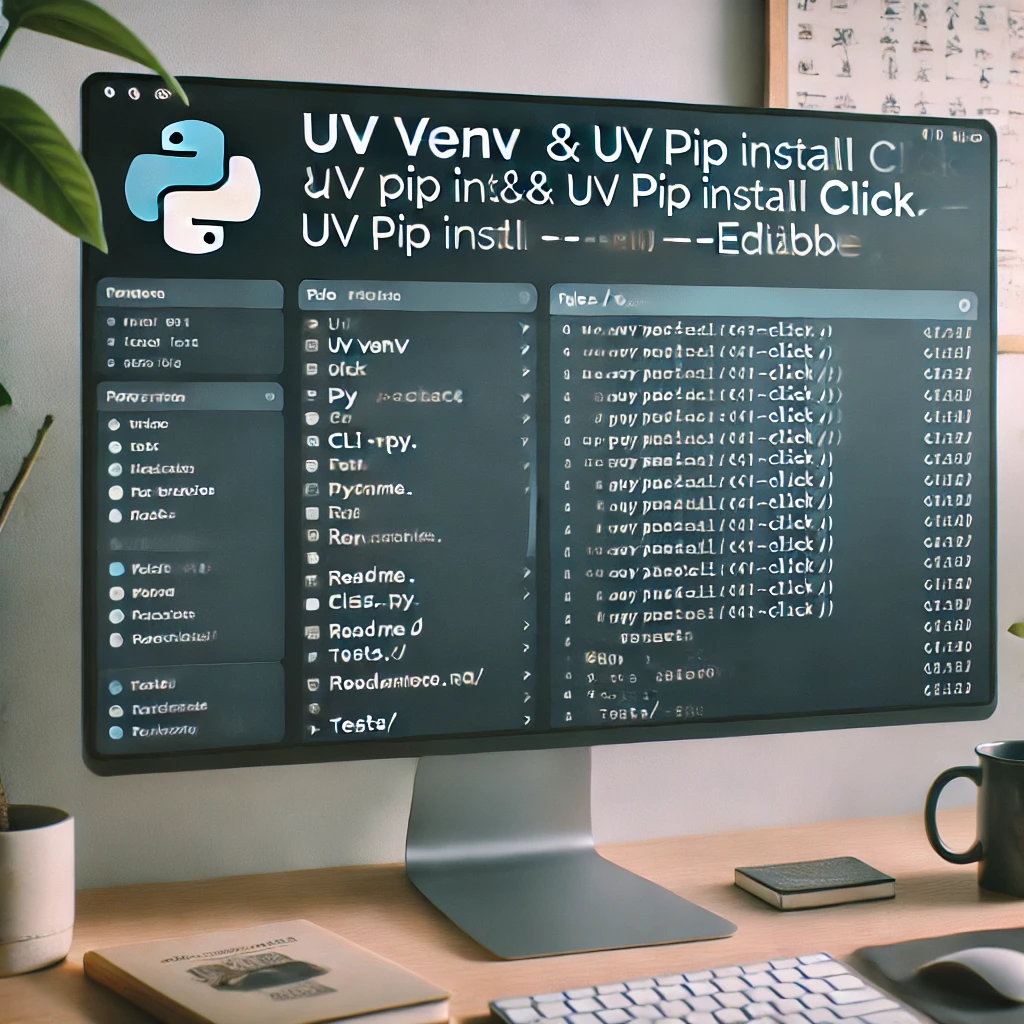Quickstart
We will set up the following:
- Create and clone an empty repo.
- Change the directory in your terminal to that repo
- Run the commands below to create a package repo
- Add in CLI
uv init --package --python 3.13 --name tester .
uv add click --dev ruff isort black mypy pytest pylint pre-commit
PACKAGE_NAME=$(grep '^name =' pyproject.toml | sed -E 's/name = "(.*)"/\1/')
echo "" > src/$PACKAGE_NAME/__init__.py
cat <<EOF > src/$PACKAGE_NAME/cli.py
import click
@click.command()
def main():
click.echo("Hello, world!")
EOF
sed -i '' "s|${PACKAGE_NAME}:main|${PACKAGE_NAME}.cli:main|" pyproject.toml
Command breakdown
uv init --package --python 3.13 --name tester .
Use uv to create the python project. Specify the python version that you want to use, and the name of your package.
uv add click --dev ruff isort black mypy pytest pylint pre-commit
Add in some dependencies:
clickbecause we want to use a cli for a simple entry point to our package- dev dependencies: Used for our linting and pre-commits. These will be leveraged in our pre-commit and CI/CD setup
PACKAGE_NAME=$(grep '^name =' pyproject.toml | sed -E 's/name = "(.*)"/\1/')
Get the package name from our toml file
echo "" > src/$PACKAGE_NAME/__init__.py
Clear out the __init__.py file. We will be using the cli.py as our entry point, not the module itself.
cat <<EOF > src/$PACKAGE_NAME/cli.py
import click
@click.command()
def main():
click.echo("Hello, world!")
EOF
Add in a bare bones CLI hello world for us to use as a starting point.
sed -i '' "s|${PACKAGE_NAME}:main|${PACKAGE_NAME}.cli:main|" pyproject.toml
Update the script section in our pyproject.toml to point at our new CLI entry point

